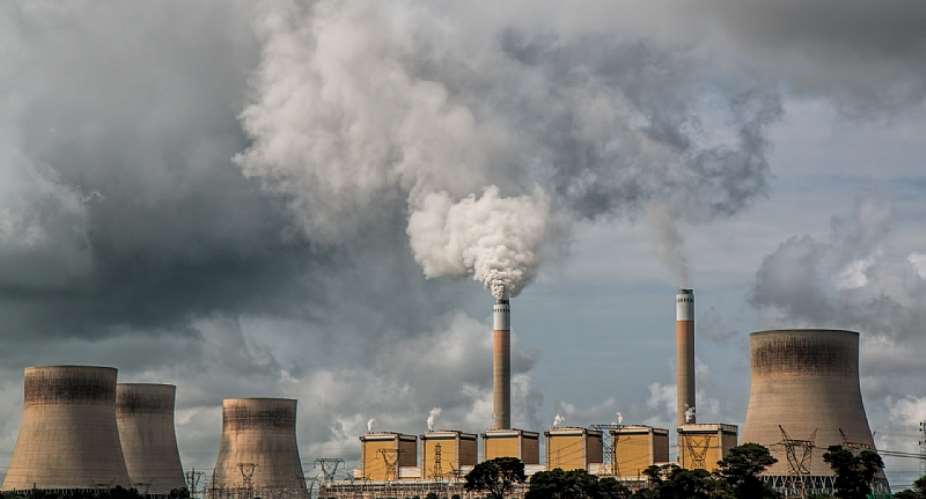Urgent financing to upgrade oil refineries and associated storage & distribution infrastructure to help avoid the numbers of premature deaths caused by air pollution in other developing world economies has been called for by Anibor Kragha, the new Executive Secretary of The African Refiners & Distributors Association (ARA).
He was speaking ahead of the ARA WEEK 2020 conference, that was postponed by constraints imposed by the Covid-19 pandemic. Normally held annually in Cape Town in March, it is being held as an on-line virtual conference this year from October 5-7..
According to the WHO, each year, air pollution causes 7 million premature deaths, of which 600,000 are children, and Mr Kragha says the challenges are clear: “Not only do we need cleaner fuels but also cleaner vehicles to achieve the cleaner air that will prevent the premature deaths that other developing economies around the world have experienced.
“To achieve that, we need to urgently attract the requisite financing needed to upgrade our refineries and complementary pipelines, depots and terminals, with rigorous analysis of the socio-economic and supply security benefits of each of these investments, which may often compete with each other.
With reference to the contention by environmental lobbyists that Africa must leapfrog technology improvements to embrace alternative, less carbon-intensive solutions rather than invest in hydrocarbon fuels, the ARA argues that such an approach fails to understand the complexities of African fuel and energy supply chains and could actually make the problem worse by delaying necessary investments to supply cleaner fuels across the continent.
Mr Kragha says “Whether through product imports or refinery investment, Africa needs both project and trade financing for improved port and storage logistics to meet petroleum products shortfalls. But what is often forgotten, is that Africa needs to embrace the improvements to our vehicle maintenance and controls required to assure that the clean fuels supplied deliver the desired objective of cleaner air – with all the well-documented consequent benefits to public health and economic development.”
The ARA has prioritised a two-step path to the future: first, clean fuels; second, climate change mitigation policies. Mr Kragha applauded the policies of his predecessor, Joël Dervain, in laying out the policies needed by the downstream (supply, refining, storage, distribution and marketing) sector of the oil industry.
Ultimately, an economic, efficient, safe, secure and sustainable supply chain for clean fuels is essential to address public health concerns, avoid energy poverty and drive industrial expansion and trade across Africa.
“The key is to define ‘sustainable’, he says. “Only then can we secure the financing for the projects required to upgrade our refineries and infrastructure and deliver efficient supply chains for clean fuels to let Africa catch up with the rest of the world on the climate change agenda.”
The ARA, its members and sponsors look forward to a lively debate at ARA WEEK 2020, with the need to achieve clear policy direction, to benefit all African states and their citizens.
The ARA was formed in 2006 in order to provide a pan-African voice for the African oil supply, refining and distribution industry. The ARA represents not only refiners but also many product importers, storage companies, marketers, and government regulators.
For further details see www.afrra.org or contact the ARA on [email protected]





 We’ll no longer tolerate your empty, unwarranted attacks – TUC blasts Prof Adei
We’ll no longer tolerate your empty, unwarranted attacks – TUC blasts Prof Adei
 Bawumia donates GHc200,000 to support Madina fire victims
Bawumia donates GHc200,000 to support Madina fire victims
 IMF to disburse US$360million third tranche to Ghana without creditors MoU
IMF to disburse US$360million third tranche to Ghana without creditors MoU
 Truck owner share insights into train collision incident
Truck owner share insights into train collision incident
 Paramount chief of Bassare Traditional Area passes on
Paramount chief of Bassare Traditional Area passes on
 Two teachers in court over alleged illegal possession of BECE papers
Two teachers in court over alleged illegal possession of BECE papers
 Sunyani: Victim allegedly shot by traditional warriors appeals for justice
Sunyani: Victim allegedly shot by traditional warriors appeals for justice
 Mahama vows to scrap teacher licensure exams, review Free SHS policy
Mahama vows to scrap teacher licensure exams, review Free SHS policy
 Government will replace burnt Madina shops with a new three-story, 120-store fac...
Government will replace burnt Madina shops with a new three-story, 120-store fac...
